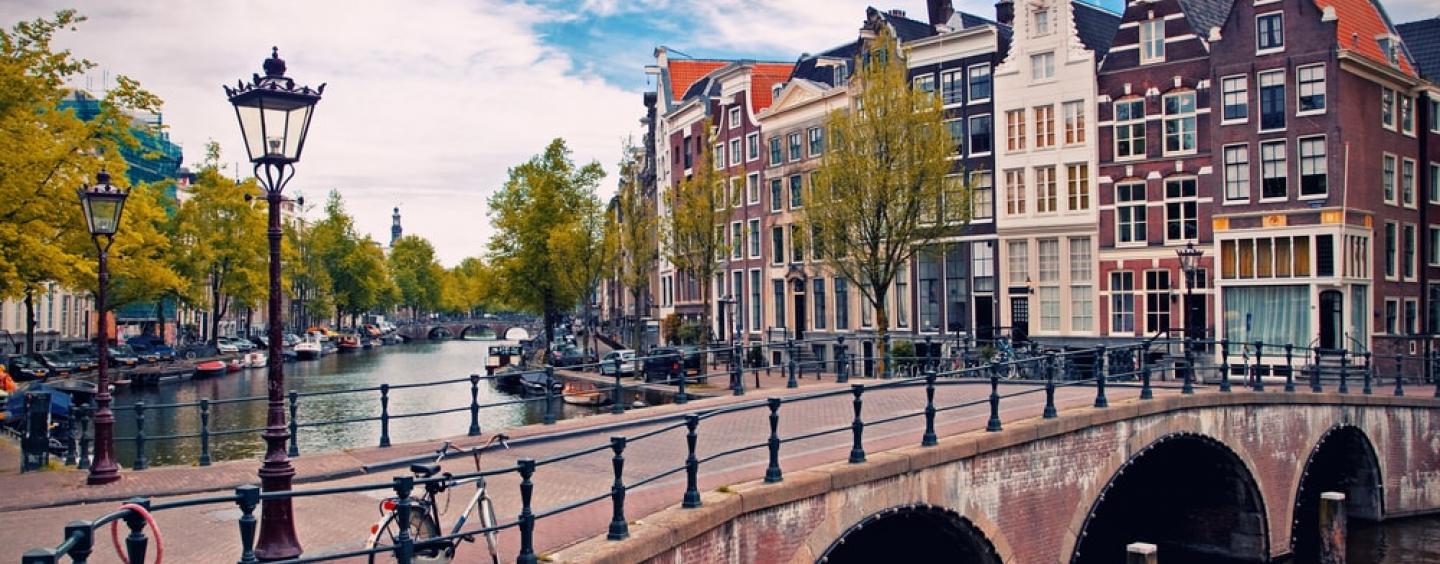How to open a bank account in the Netherlands
Living in the Netherlands is a dream for many, starting with physical and care workers looking for a decent income, to creative class planning on an international career, to high-earning expats counting on solid employment and business opportunities, to foreign students lured by the great Dutch university system and their educational offer.
It is an attractive nest for families, as the Netherlands has one of the happiest children on the planet. Parents with children get to live in a place that offers great education and care, and where biking is such a big part of daily lives. After all, physical effort and movement are some of the main factors in human wellbeing.
It’s also a place where people value free time and good work-life balance, with a renown open-minded environment. Luckily, the Dutch government has been investing a lot in developing and promoting other areas of the country, which means that now, besides Amsterdam, there’s a lot of urban destinations that have the charm of the capital without the steep prices of living and overcrowded, expensive rental market of the capital.

It’s a country that’s oriented towards the future, interested in exploring new ways in which people work and have fulfilling lives. You’ll probably need to learn the Dutch language if you want to seriously commit yourself to the Netherlands, but worry no more - most of the Dutch are fluently speaking English, so before you master the local speak, you will be able to lead an independent life anyway.
So, if you’ve decided to give it a shot, we’re here to guide you through the process of opening a personal bank account. Since the Netherlands is a largely digital and cashless country, it’s best to sort it out on your visit or in the first days of your stay
What documents are required to open a bank account in the Netherlands?
With the majority of banks, you will have a choice between opening your bank account via the internet or in person, and you’ll need to prepare to provide the following documents:
- Your passport or national identity card
- Proof of your address - for example, a signed rental contract or a recent utility bill serves the purpose;
- A BSN, short for burgerservicenummer, a unique personal citizen service number, issued for every Dutch resident. European citizens do not need to provide it.
Be aware that different banks have different requirements - and will ask for different things, for example when opening an instant account via mobile app, where you will often be asked to take a photo of yourself and send it in. You will always be asked to bring some kind of proof of your residency - and pretty much any bill and document with your address does that job. Options range here from rental agreements or mortgage statements, to utility bills, to bank or credit card statements provided by the bank. And if you’re a student, a birth certificate or university registration will suffice.
Can I open a bank account in the Netherlands as a non-resident?
It is possible for you to open a bank account in the Netherlands as a non-resident. Some of the banks offer special "international" accounts in that situation. Another option is to use your local financial institution that has a correspondent bank in the Netherlands, or an international branch there. That speeds up the process and allows you to get an account before setting your foot in the country. You can count on your local office to support you through the process. We are aware that currently ING and Bunq banks offer special international accounts.
FAQs
1- Can a foreigner open a bank account?
Yes, as a foreigner or non-resident, you may open a bank account in the Netherlands as mentioned above. Can you open a Dutch bank account online as a foreigner? Still, the answer is yes as most Dutch banks allow this. As an expat, you have two options: (1) open an account by personally visiting a branch or (2) open an account online through the bank’s website. It may be a great idea for you to choose a Dutch bank with international operations, as well as supports the English language.
As with opening bank accounts in person, opening a Dutch bank account online also requires you to submit a BSN. If you don’t have a BSN, another way to get it is by getting your RNI or Registratie Niet Ingezetenen. You can get your RNI when you register as a non-resident in the Netherlands. Obtaining this number will also allow you to automatically obtain your BSN. You can get this number only if you have no plans of spending over four months in the country, and you can get this number in person.
But if you’re opening a Dutch bank account from abroad, you can’t do so via online as most Dutch banks don’t allow online opening of overseas accounts. You need to go to a branch of the Dutch bank in your home country (if there’s any). Or you may go to a bank with arrangements as a correspondent bank with a Dutch bank or to an international bank with Dutch operations.
Another alternative would be to open a digital or mobile bank account.
2- How long does it take to open a Dutch bank account?
Foreigners can open mobile-only accounts, such as B2BPay, in a matter of minutes by simple using their mobile phones. Simply furnish your mobile number, physical address which doesn’t necessarily have to be in the Netherlands, and your email address.
For in-person application, you can walk away with a Dutch bank account in as fast as 30 minutes with some banks provided you have the necessary requirements ready. If you don’t have a BSN and a Dutch cell phone or prepaid number, then it could take five working days to process your Dutch bank account.
Best banks in the Netherlands
The largest banks in the Netherlands are ING, Rabobank, ABN AMRO and SNS-Bank. They’re established financial institutions, with extensive banking and financial products for individuals and businesses, and with networks covering the entire country and reaching worldwide.
- ING is one of the largest and oldest banks in the world, with 200 years of history and branches all over the Netherlands,as well as overseas. ING is a financial institution and a corporation that covers various areas, including retail banking, direct banking, commercial banking, investment banking, wholesale banking, private banking, asset management, and insurance services. The process of opening most of these accounts with ING is easy and quick: you get access to your bank account within minutes. Just remember to bring all the documents to your appointment, or scan them before applying online.
- Rabobank offers its banking services for a minimum monthly fee of 1.30 euros. Rabobank's basic bank account is a good starter - you also receive a free debit card, online banking access, and ATMs all over the country. Students get extra perks: the account is free to open, you can set it so that it automatically pays the tuition fees or rent each month for a very small fee. Don’t forget to bring a proof of your enrollment with you! Rabobank has ATMs and branches all over the country.
- ABN AMRO is a bank that operates in the Netherlands only, but it does have thousands of ATMs and plenty of branches. With ABN you need a proof of Dutch address to open an account, as well as your passport, and an employment contract. ABN AMRO offers online banking as standard, so you can do all of your essential payments and execute transfers.
- SNS Bank is a nationalized bank with a 200-year-long history. It does have a large network of branches and ATMs. Here you also need to have a Dutch address to open a bank account, and the procedure requires your visit in person in your local branch. Opening an account here is free, and you pay 2.50 euro monthly maintenance fee. The account comes with a free debit card. Warning: the bank does not operate in English.
Other Dutch banks to take note of are Triodos Bank and ASN which are marketed as ethical banks. Knab, an online startup offering online retail banking services in the Netherlands, is also making waves.
Best online banks in the Netherlands
There is also a host of online banks with intuitive mobile apps to choose from. By simply using the mobile phone app of the digital bank you’ve chosen, you can already make payments, transfer money and manage your finances. You can deposit money from another account to these app-based accounts.
- Bunq.com is one of the popular choices. It’s a Dutch bank available to its customers in several languages - Portuguese, Spanish, English, German, Italian and French. The accounts are not free, but to open them takes a couple of minutes and is easily accessible to anyone with an address in some of the European countries, or the USA, and a phone number. It offers zero exchange rates on its Travel Mastercard accounts as well.
- B2BPay is another mobile bank trusted by 3000 businesses in their global transactions, providing lower conversion costs than a traditional bank. With a B2B Pay account, your company can get a non-resident bank account in Europe - including the Netherlands - with your own IBAN. You can make SEPA payments to 36 EU countries. B2BPay supports 30+ currencies in 170+ countries. Best options for businesses as you can get contant customer support to handle your financies.
- N26 is another app-based bank based in Germany which you can use in the Netherlands and throughout Europe. It offers budgeting tools and other features. It has monthly fees ranging between € 0 (N26’s Standard account) to € 16.90 (which is their premium Metal account) and 0 currency conversion fee. A metal card comes with the Metal account. If your transactions are only in Euro, then you will do well with N26 as it only supports this currency.
Opening a bank account in the Netherlands is a fairly straight forward process, as long as you bring the necessary documents. It’s good to double-check online or by phone with the bank that you need to provide. It’s also worth making a comparison between available account types and costs they incur, in different banks, so that you have an overview of the recent market situation. Inform yourself about the types of credit/debit cards they include. Especially important is to consider the costs of ATM withdrawals, as some of them can be expensive if you’re not using your bank’s machine.
The virtual bank account alternative
B2B Pay is a better option over a bank's wire transfer
Exchange rates and SWIFT fees are always relatively high, regardless of the bank you choose. This happens because banks do not respect the mid market rate (which is the exchange rate they use between each other) when performing international transfers on your behalf. They not only charge up to 10% for the service but also impose a SWIFT transfer fee, which in the Netherlands can range from 5 to 50 euros, depending on the bank. And even if they charge less, there are often hidden fees impossible to avoid, especially when a large bank does international transfers to banks in smaller markets or when the transfer involves multiple intermediary banks, each of which is charging its own fee for the transaction.
B2B Pay created the virtual bank account giving you access to the European banking market. It also connects you with banks all over the world and allows you to transfer money back home and anywhere else on the planet for fees that are more than 80% lower than those practiced by banks. Additionally, your money travels faster and sometimes arrives on the same day, even in the case of slower countries, such as India or Brazil.
Page content
About the author

Disclaimer
This publication is provided for general information purposes and does not constitute legal, tax, or other professional advice from B2B Trade Payment Services AB or its affiliates, and it is not intended as a substitute for obtaining advice from a financial advisor or any other professional.
How to open a bank account in Europe
We have comprehensive guides on opening bank accounts across multiple European countries. These resources also explain how a virtual bank account with Narvi Payments can be a smarter alternative for international transfers, offering better exchange rates and greater convenience.
-
 How to open a bank account in Andorra
How to open a bank account in Andorra -
 How to open a bank account in Austria
How to open a bank account in Austria -
 How to open a bank account in Bulgaria
How to open a bank account in Bulgaria -
 How to open a bank account in Croatia
How to open a bank account in Croatia -
 How to open a bank account in Czech Republic
How to open a bank account in Czech Republic -
 How to open a bank account in Cyprus
How to open a bank account in Cyprus -
 How to open a bank account in Denmark
How to open a bank account in Denmark -
 How to open a bank account in Estonia
How to open a bank account in Estonia -
 How to open a bank account in Finland
How to open a bank account in Finland -
 How to open a bank account in France
How to open a bank account in France -
 How to open a bank account in Germany
How to open a bank account in Germany -
 How to open a bank account in Greece
How to open a bank account in Greece -
 How to open a bank account in Hungary
How to open a bank account in Hungary -
 How to open a bank account in Ireland
How to open a bank account in Ireland -
 How to open a bank account in Italy
How to open a bank account in Italy -
 How to open a bank account in Latvia
How to open a bank account in Latvia -
 How to open a bank account in Liechtenstein
How to open a bank account in Liechtenstein
-
 How to open a bank account in Lithuania
How to open a bank account in Lithuania -
 How to open a bank account in Luxembourg
How to open a bank account in Luxembourg -
 How to open a bank account in Malta
How to open a bank account in Malta -
 How to open a bank account in Monaco
How to open a bank account in Monaco -
 How to open a bank account in the Netherlands
How to open a bank account in the Netherlands -
 How to open a bank account in Norway
How to open a bank account in Norway -
 How to open a bank account in Poland
How to open a bank account in Poland -
 How to open a bank account in Portugal
How to open a bank account in Portugal -
 How to open a bank account in Romania
How to open a bank account in Romania -
 How to open a bank account in San Marino
How to open a bank account in San Marino -
 How to open a bank account in Slovakia
How to open a bank account in Slovakia -
 How to open a bank account in Slovenia
How to open a bank account in Slovenia -
 How to open a bank account in Spain
How to open a bank account in Spain -
 How to open a bank account in Sweden
How to open a bank account in Sweden -
 How to open a bank account in Switzerland
How to open a bank account in Switzerland -
 How to open a bank account in the UK
How to open a bank account in the UK
